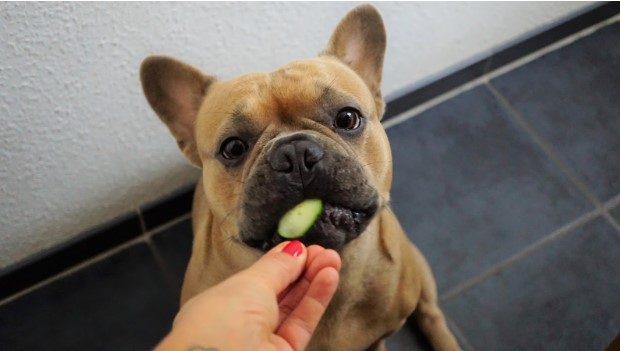
Keeping your furry friend healthy and happy is no small task. Just like us humans, dogs need a balanced routine of exercise, nutrition, grooming, mental stimulation, sleep, and preventive care. Neglecting any of these can lead to health problems and an unhappy pup. In this blog post, we will walk you through six daily habits that will ensure your dog lives a long, joyful life. Whether you’re a new pet parent or a seasoned pro, these tips will help you fine-tune your dog’s daily regimen.
1. Regular Exercise
The Benefits of Daily Exercise
Exercise isn’t just about burning off energy; it’s crucial for your dog’s cardiovascular health, muscle tone, and mental well-being. Regular physical activity helps prevent obesity, reduces anxiety, and can even improve your dog’s behavior by providing a healthy outlet for pent-up energy.
Recommended Exercise for Different Breeds
Not all dogs have the same exercise needs. While a Border Collie might require several hours of rigorous activity, a Chihuahua might be content with a short walk around the block. Generally, aim for at least 30 minutes to 2 hours of exercise per day, tailored to your dog’s breed and age.
Fun Exercise Activities
Switch up your exercise routine to keep it exciting. Try activities like fetch, agility training, or even swimming. Regular walks are great, but incorporating varied activities will keep your dog engaged and provide a full-body workout.
2. Balanced Nutrition
The Importance of a Balanced Diet
A balanced diet is fundamental to your dog’s health. Quality food gives them the nutrients they need to maintain healthy skin, a shiny coat, and strong muscles. Poor nutrition can lead to obesity, diabetes, and other health issues.
Elements of a Healthy Diet
Make sure your dog’s diet includes high-quality proteins, carbohydrates, fats, vitamins, and minerals. Avoid foods with fillers, artificial preservatives, and low-quality ingredients. Moreover, on the Paw Origins website, and other similar ones, you can learn more about how vitamins and CBD products for dogs can help out your pet. That way, their diet can be even better and they will lead a happier life.
Healthy Food Options
Incorporate fresh fruits and vegetables like carrots, apples, and spinach into your dog’s meals for added vitamins. Lean meats like chicken and fish provide excellent protein sources. Always consult your vet before making significant changes to your dog’s diet.
3. Daily Grooming
Grooming Needs by Breed
Different breeds have varying grooming needs. While short-haired dogs might only need a weekly brush, long-haired breeds require daily grooming to prevent matting and tangling. Regular grooming helps distribute natural oils, keeping your dog’s coat shiny and healthy.
Health Benefits of Grooming
Daily grooming isn’t just about aesthetics; it’s vital for your dog’s health. Regular brushing removes dead hair, stimulates blood circulation, and allows you to check for ticks, fleas, and skin abnormalities. It’s a great bonding activity that can also make your dog more comfortable.
Grooming Tools and Tips
Invest in quality grooming tools like brushes, combs, and nail clippers. Make grooming a positive experience by rewarding your dog with treats and praise. Start slowly if your dog is not used to being groomed, gradually increasing the grooming time.
4. Mental Stimulation
Why Mental Stimulation Is Important
Just like physical exercise, mental stimulation is key to a happy and healthy dog. Mental activities prevent boredom, reduce destructive behaviors, and can even slow the cognitive decline associated with aging.
Activities to Keep Your Dog Engaged
Puzzle toys, interactive games, and learning new tricks are excellent ways to challenge your dog’s mind. Rotate toys and activities to keep things fresh. Teaching new commands or tricks not only stimulates their brain but also strengthens your bond.
Benefits of Training
Regular training sessions keep your dog mentally sharp and well-behaved. Use positive reinforcement techniques to make learning enjoyable. A mentally stimulated dog is a well-behaved dog, making your life easier and enhancing your dog’s well-being.
5. Consistent Sleep Schedule
The Role of Sleep in Health
Adequate sleep is crucial for your dog’s health. Just like humans, dogs need sleep to repair tissues, build muscle, and support overall health. A well-rested dog is less likely to be irritable and more likely to be active and engaged.
Establishing a Sleep Routine
Create a sleep-friendly environment by setting up a comfortable bed in a quiet area. Stick to a consistent bedtime routine, which helps regulate your dog’s internal clock. Avoid stimulating activities close to bedtime to ensure a restful night.
Signs of Sleep Disturbances
Monitor your dog for signs of poor sleep, such as excessive yawning, irritability, or lethargy. If you notice any of these symptoms, consult your vet for advice. Good sleep is a pillar of good health, and your dog’s sleep quality shouldn’t be overlooked.
6. Regular Veterinary Check-ups
The Importance of Preventive Care
Regular veterinary visits are essential for catching potential health issues early. Preventive care can save you time, money, and heartache in the long run. Routine exams allow your vet to monitor your dog’s health and make recommendations for diet, exercise, and other care aspects.
What to Expect During a Check-up
During a typical veterinary check-up, your vet will perform a physical exam, check vital signs, and possibly run blood tests. These visits are an opportunity to discuss any concerns you have and get professional advice tailored to your dog’s specific needs.
Vaccinations and Preventatives
Ensure your dog is up-to-date on vaccinations and preventative treatments like flea, tick, and heartworm medications. Regular vet visits help you stay on top of these essential health measures, ensuring your dog remains protected against common ailments.

Incorporating these six daily habits into your dog’s routine will set the foundation for a long, happy life. Regular exercise, balanced nutrition, daily grooming, mental stimulation, a consistent sleep schedule, and regular veterinary check-ups are all essential components of comprehensive pet care.
By committing to these habits, you’re not just improving your dog’s physical health but also enhancing their emotional well-being. A well-cared-for dog is a happy dog, and a happy dog makes for a happy home.






